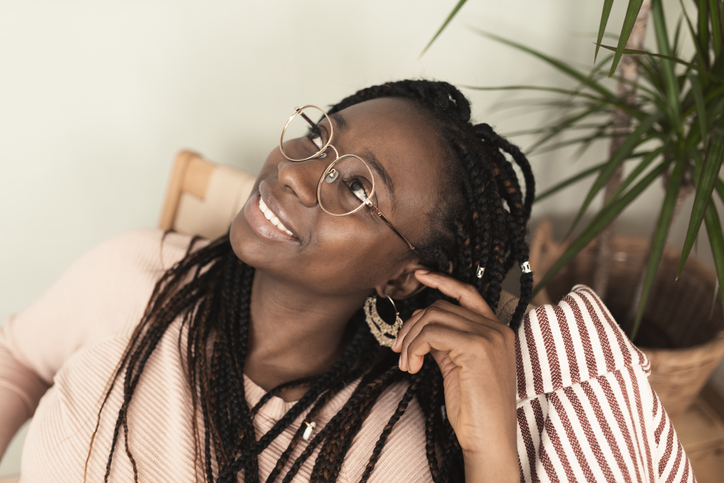Questions People Ask Google About Black People
Source: MixMedia / Getty
Black people are amazing! A rich legacy of innovation, music, and culture runs rampant across the diaspora. We’ve been known to shake up the world with our resilience, fight back against social and economic injustice, and create some of the most advanced forms of technology that would go out to impact the world. Did you know a Black woman by the name of Mary Van Brittan Brown created the home security system in 1966? Legendary African American singer and songwriter, Chuck Berry, was responsible for ushering in the genre of Rock, although Elvis usually takes all the credit, and, Mansa Musa, a 14th-century African ruler of the Mali empire was once the richest man in the world, acquiring a boatload (that doesn’t even cut it) of wealth from land and gold obtained during his reign across West Africa.
Well, while those aforementioned tidbits may be widely known about the greatness of Black people’s achievements far and wide, it appears as though internet users are searching for some more obscure questions about the community that may or may not be so easily answered. Thankfully, due to the power of Google, we’re able to find answers to the world’s most pressing questions, even those about Black people, and let us tell you, there are a ton of commonly searched questions like, “Do Black people sweat more?” or “Do Black people get shingles?” Heck, folks even wonder if we eat pumpkin pie! Well, NEWS-ONE is here to break down all of your questions. So, let’s get into it.
Do black people get sunburn?
Of course, we do, but it’s a little bit more difficult for Black folks to get sunburnt because of our rich melanin. According to Healthline, “It’s a skin pigment produced by skin cells called melanocytes.” Melanin works wonders for us because it can block harmful UV rays from penetrating our skin and guess what? The darker you are, the more melanin you have, which ultimately helps thwart off more of those pesky UV rays. According to the CDC, about “13 percent of black women ” sunburn compared to “9 percent of Black men.”
Do black people get skin cancer?
Now, unfortunately, long-term exposure to the sun can increase our risk for skin cancer.
Healthline notes that people of darker hues can detect early signs of skin cancer by looking into their mouths for any abnormalities. Consult a doctor if you see the following:
dark spots, growths, or patches that appear to be changing
patches that feel rough and dry
dark lines underneath or around fingernails and toenails
Can black people have blonde hair?
Yes! The blonde hair trait is quite rare, but some Black people with blonde hair can be found in parts of Europe, Melanesia, and among a few aboriginal tribes in Australia.
More commonly, about 10 percent of indigenous people from the Solomon Islands have strikingly blonde hair. A team of researchers were able to analyze saliva samples of more than 1,000 islanders and found that the people possessed a gene called TYRP1, which has been known to cause mutations within skin pigmentation in humans, the New York Times (NYT) noted. Interestingly, when researchers dug deeper, they noticed that the special gene variant wasn’t found in Europeans, which was where many people believed the melanated community of the Solomon Islands inherited their blonde tresses.
Carlos Bustamente, a geneticist at Stanford University behind the massive study, told the NYT:
“For me, it breaks down any kind of simple notions you might have about race. Humans are beautifully diverse, and this is just the tip of the iceberg.”
That’s a fact Bustamente!
Do black people have blue eyes?
Yes, we most certainly can and it’s because of another complex gene variant called OCA2 which causes mutations within melanin. Fun fact, melanin can not only be found in skin but it’s present in our eyes too! It’s the substance that’s used to give our hair, eyes, and skin color.
According to Professor Hans Eiberg from the Department of Cellular and Molecular Medicine, at one point everyone had brown eyes, but as humans evolved, the OCA2 gene caught some sort of funky genetic mutation that prompted the chromosome to “switch off,” reducing the production of melanin in the iris. This is what caused brown eyes to slowly morph into blues eyes. Sounds pretty strange, right? Well, Black folks with blue eyes are affected by the same OCA2 genetic mutation. Researchers aren’t quite sure where the hiccup originated from, but, according to The Independent, a few scientists believe it arose “about 10,000 years ago” as the population of Europe and the Middle East expanded.
“The mutations responsible for blue eye color most likely originate from the north-west part of the Black Sea region, where the great agricultural migration of the northern part of Europe took place in the Neolithic periods about 6,000 to 10,000 years ago,” the publication noted.
Eiberg studied the DNA of 800 people with blue eyes from varying countries ranging from “fair-skinned, blond-haired Scandinavians to dark-skinned, blue-eyed people living in Turkey and Jordan.” He found that they all shared the OCA2 gene in common.
“All of them, apart from possibly one exception, had exactly the same DNA sequence in the region of the OCA2 gene,” he explained of the extraordinary data. “This to me indicates very strongly that there must have been a single, common ancestor of all these people,” he added.
Well, there you have it.
Are black people more athletic?
Alright, now this one might be a little tough to answer. The short answer is…. no one knows. There isn’t any tangible evidence to suggest that Black people are faster runners, better sprinters, or even better basketball players. It’s a metaphysical quality that is very abstract.
SEE ALSO:
Motown Teams Up With Google To Empower Women Of Color In Music
Issa Rae’s Music Label Teams Up With Google To Empower Underrepresented Artists

